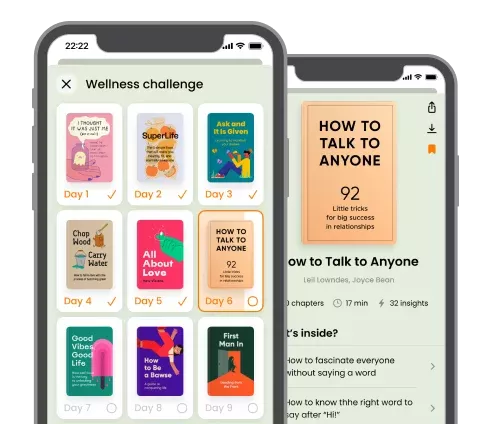18 Best Biology Books
Explore a wide range of biology books to enhance your knowledge and understanding of the fascinating world of living organisms.
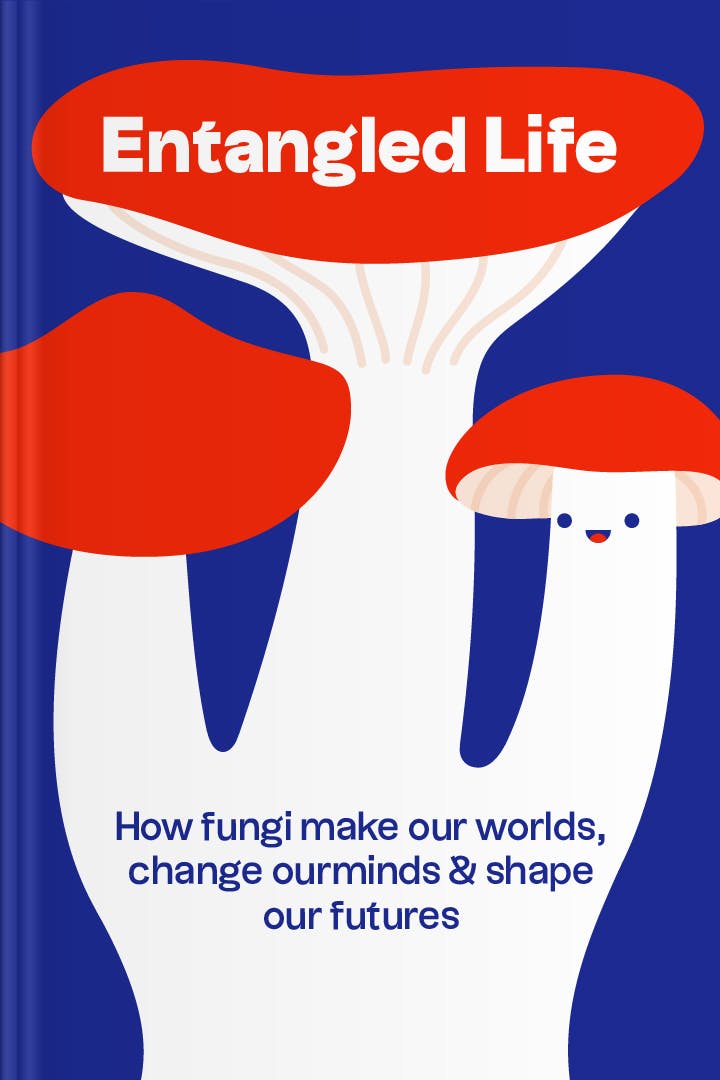 1
1Entangled Life
by Merlin Sheldrake
What is Entangled Life about?
"Entangled Life" explores the fascinating and often overlooked world of fungi, revealing their profound impact on our planet and our lives. From their intricate networks that connect plants and trees to their ability to break down pollutants and even alter our consciousness, Merlin Sheldrake takes readers on a captivating journey into the hidden realms of these remarkable organisms. This thought-provoking book sheds light on the immense power of fungi to shape our futures and transform our understanding of the natural world.
Who should read Entangled Life
Biologists and scientists interested in the intricate world of fungi.
Nature enthusiasts seeking a deeper understanding of the fungal kingdom.
Environmentalists and sustainability advocates exploring the vital role of fungi.
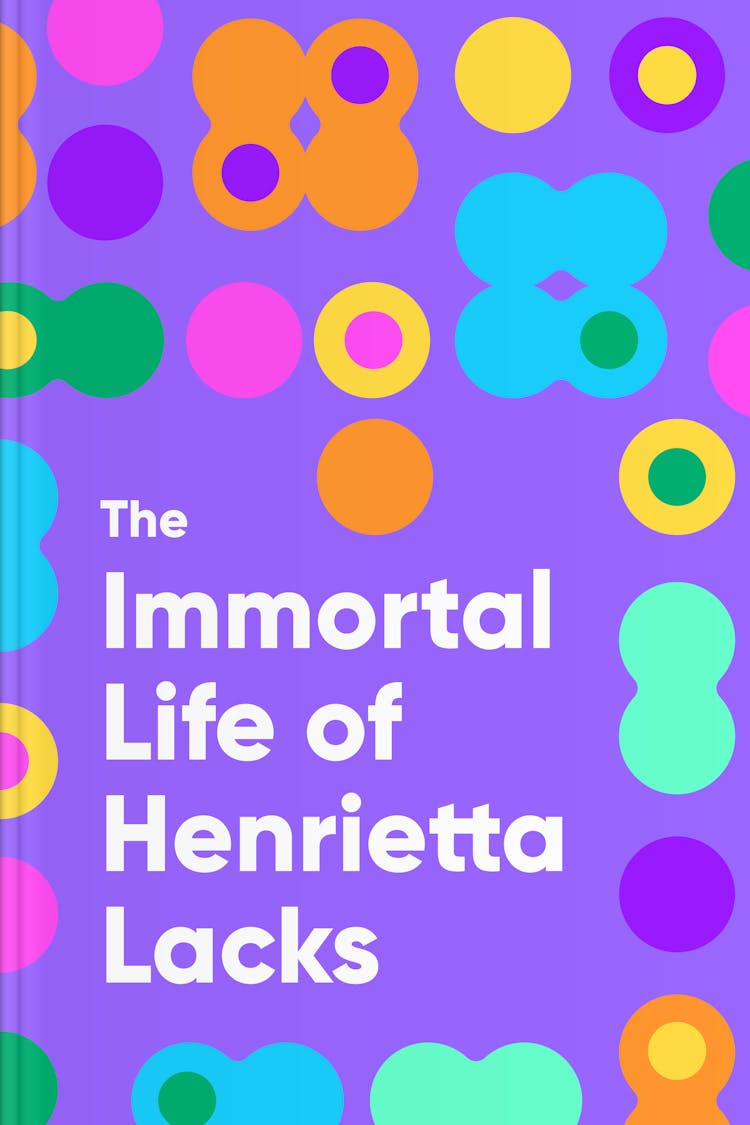 2
2The Immortal Life of Henrietta Lacks
by Rebecca Skloot
What is The Immortal Life of Henrietta Lacks about?
"The Immortal Life of Henrietta Lacks" delves into the remarkable story of a woman named Henrietta Lacks, whose cells were unknowingly taken without her consent and became the foundation for countless medical breakthroughs. Rebecca Skloot explores the ethical implications surrounding the use of Henrietta's cells, while also shedding light on her life and the impact her immortal cells had on scientific research, forever changing the field of medicine.
Who should read The Immortal Life of Henrietta Lacks
Science enthusiasts interested in the ethical implications of medical research.
History buffs curious about the untold story of a remarkable woman.
Medical professionals seeking a deeper understanding of cell culture advancements.
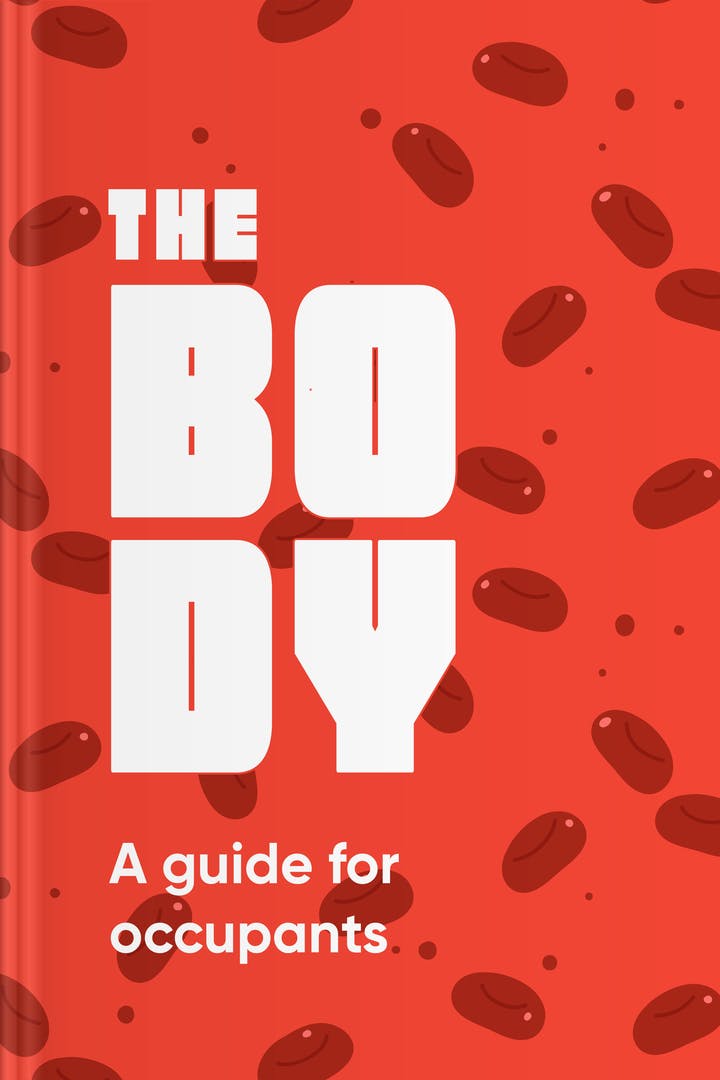 3
3The Body
by Bill Bryson
What is The Body about?
"The Body: A Guide for Occupants" is an enlightening and captivating exploration of the human body, written by a renowned author. With his signature wit and curiosity, the author takes readers on a fascinating journey through the intricate and awe-inspiring systems that make up our bodies. From the brain to the immune system, Bryson delves into the marvels and mysteries of human anatomy, offering a comprehensive and accessible guide to understanding our own bodies.
Who should read The Body
Medical professionals seeking a comprehensive understanding of the human body.
Science enthusiasts eager to explore the intricacies of human anatomy.
Curious individuals interested in learning about their own bodies.
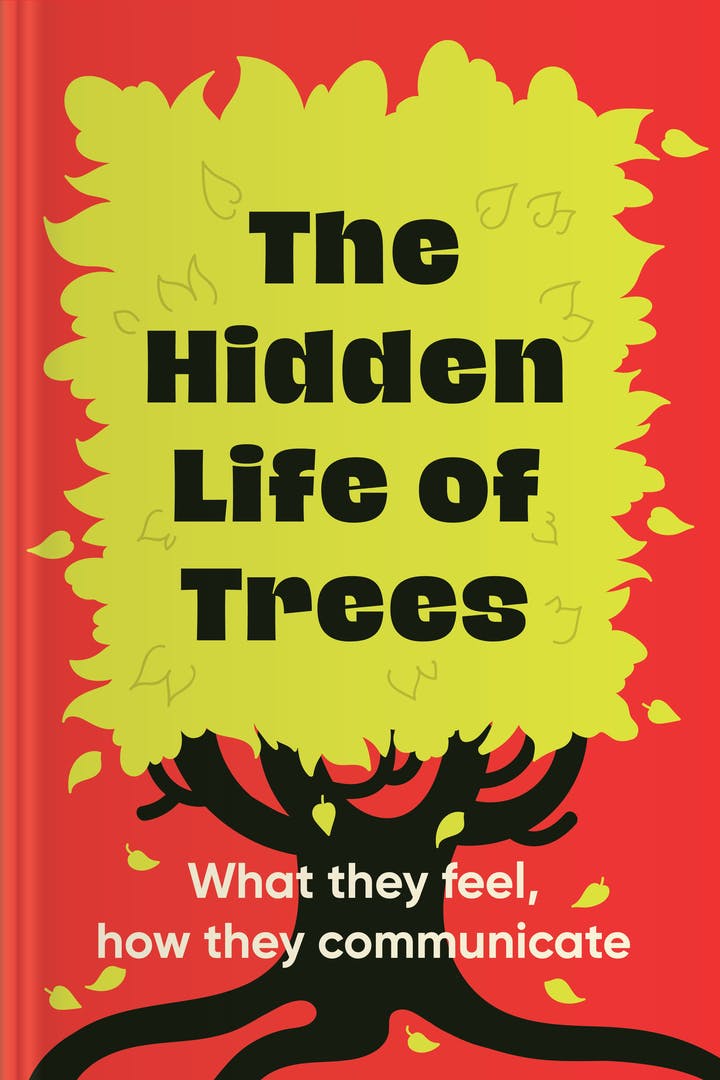 4
4The Hidden Life of Trees
by Peter Wohlleben
What is The Hidden Life of Trees about?
In this captivating exploration of the natural world, the author delves into the hidden lives of trees, revealing their astonishing abilities and complex social networks. From their ability to communicate and share resources to their capacity to feel pain and form nurturing relationships, Wohlleben uncovers the secrets of these ancient organisms. With a blend of scientific research and personal anecdotes, this book offers a profound understanding of the intricate and interconnected world of trees.
Who should read The Hidden Life of Trees
Nature enthusiasts seeking a deeper understanding of the intricate lives of trees.
Environmentalists looking to explore the interconnectedness of forests and ecosystems.
Curious individuals interested in uncovering the mysteries of the natural world.
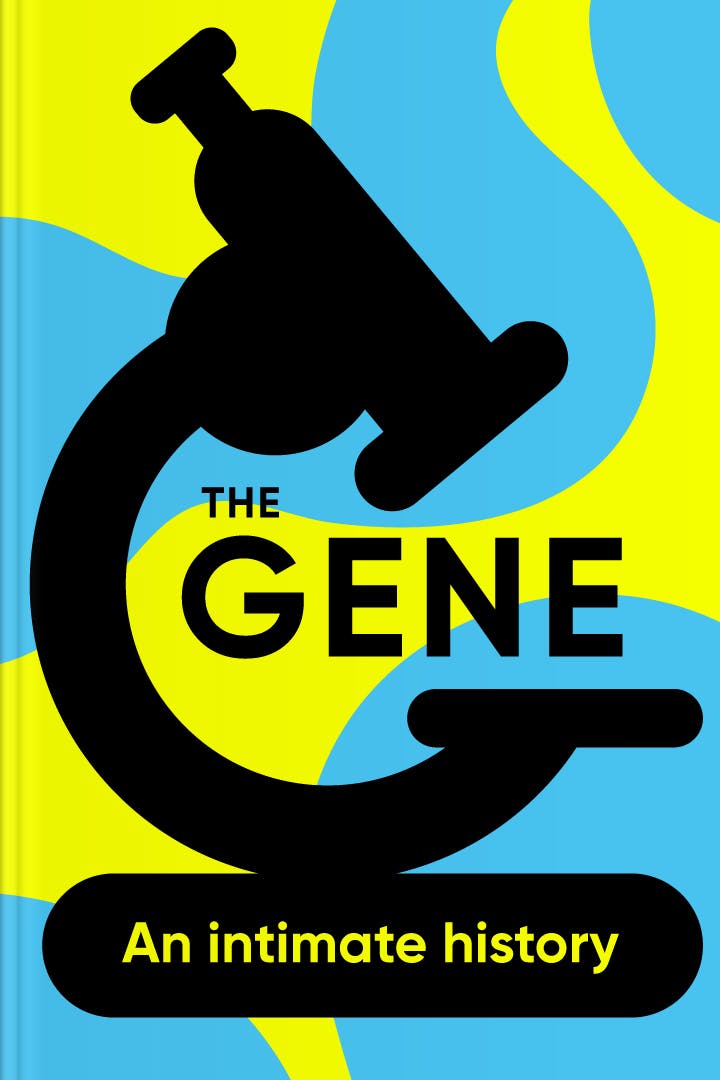 5
5The Gene
by Siddhartha Mukherjee
What is The Gene about?
"The Gene: An Intimate History" delves into the captivating world of genetics, exploring the profound impact genes have on our lives. Siddhartha Mukherjee takes readers on a journey through the history of genetics, from its discovery to the present day. With a blend of scientific expertise and personal anecdotes, Mukherjee unravels the complexities of genes, shedding light on their role in shaping our identities, health, and the future of medicine.
Who should read The Gene
Science enthusiasts seeking a comprehensive exploration of genetics.
Medical professionals looking to deepen their understanding of genetics.
Individuals curious about the impact of genes on human history.
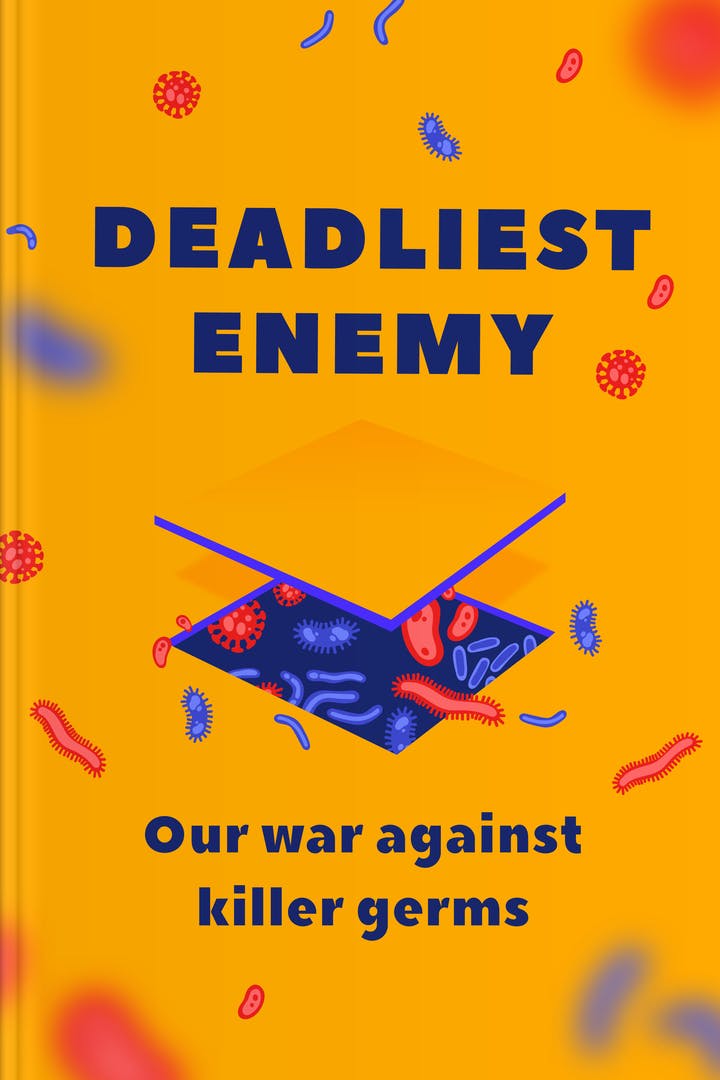 6
6Deadliest Enemy
by Michael T. Osterholm, Mark Olshaker
What is Deadliest Enemy about?
"Deadliest Enemy: Our War Against Killer Germs" is a compelling and eye-opening book that delves into the urgent and ongoing battle against infectious diseases. Written by Michael T. Osterholm and Mark Olshaker, this thought-provoking work explores the history, challenges, and potential future threats posed by deadly germs. With a focus on public health, the authors provide valuable insights and strategies to combat these invisible adversaries, emphasizing the importance of preparedness and global cooperation.
Who should read Deadliest Enemy
Medical professionals seeking to understand and combat infectious diseases.
Public health officials and policymakers concerned with global health threats.
General readers interested in the science and history of infectious diseases.
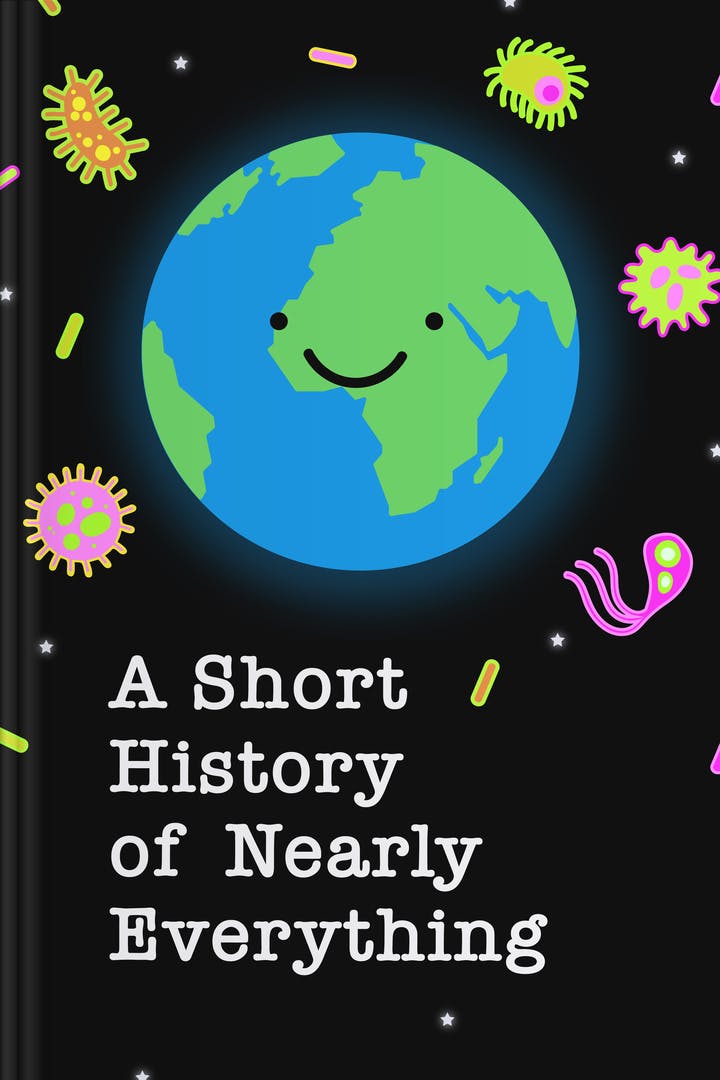 7
7A Short History of Nearly Everything
by Bill Bryson
What is A Short History of Nearly Everything about?
"A Short History of Nearly Everything" is a captivating exploration of the scientific discoveries that have shaped our understanding of the world. Written by a renowned author, this book takes readers on a journey through time, unraveling the mysteries of the universe, the origins of life, and the fascinating stories of the scientists who made groundbreaking contributions. With wit and clarity, it presents complex concepts in an accessible manner, making it a must-read for anyone curious about the wonders of our existence.
Who should read A Short History of Nearly Everything
Science enthusiasts seeking a comprehensive and engaging overview of the universe.
Curious individuals eager to explore the wonders of our world.
Students and educators looking for an accessible science reference book.
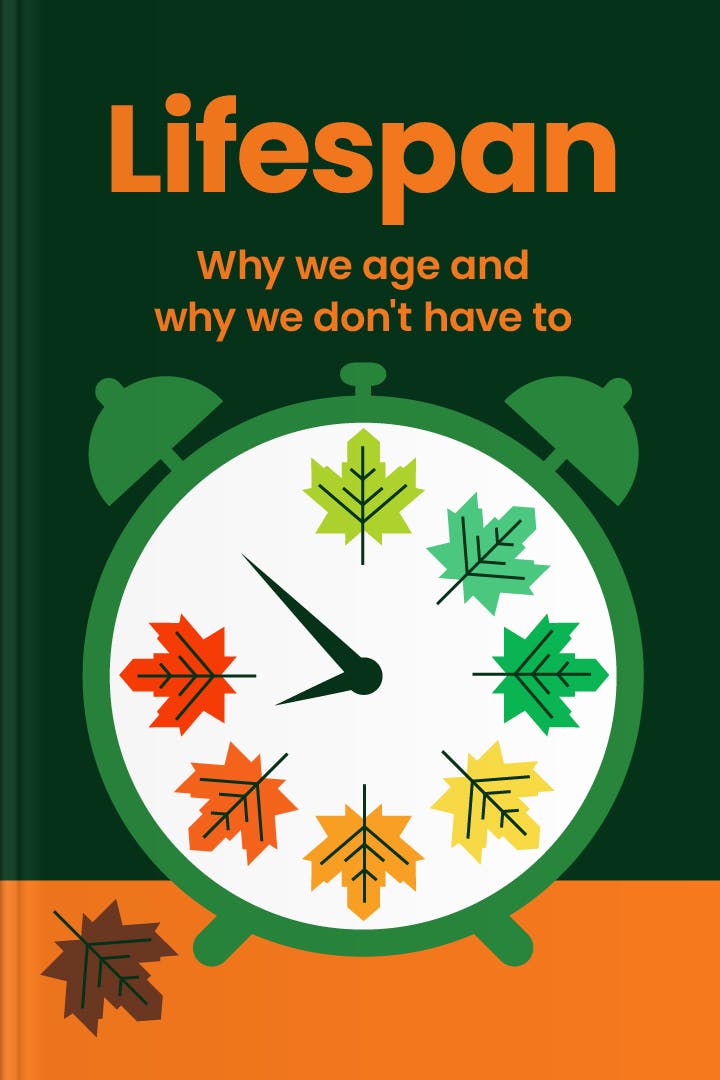 8
8Lifespan
by David A. Sinclair, PhD
What is Lifespan about?
In this thought-provoking book, a renowned scientist delves into the fascinating topic of aging. Exploring the mechanisms behind why we age, he presents groundbreaking research and offers a hopeful perspective on the possibility of extending our lifespan. With a blend of scientific expertise and accessible storytelling, the author challenges conventional wisdom and provides insights into how we can potentially overcome the limitations of aging.
Who should read Lifespan
Scientists and researchers interested in understanding the mechanisms of aging.
Health enthusiasts seeking practical strategies to slow down aging.
Individuals curious about the science behind extending human lifespan.
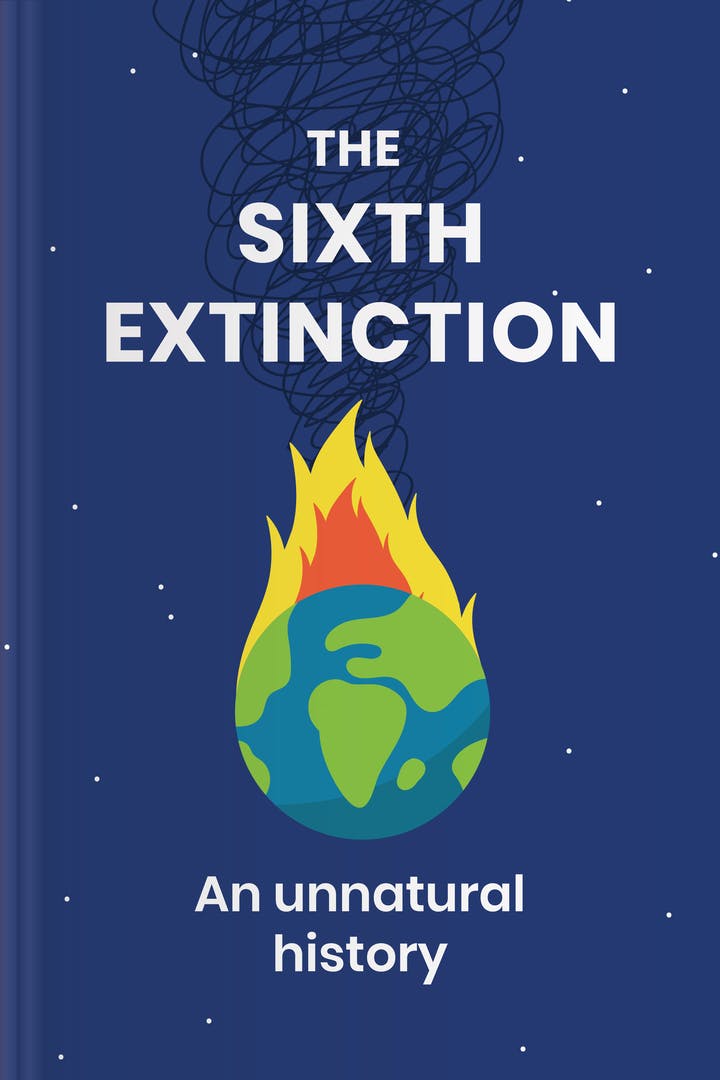 9
9The Sixth Extinction
by Elizabeth Kolbert
What is The Sixth Extinction about?
"The Sixth Extinction: An Unnatural History" by Elizabeth Kolbert explores the alarming reality of Earth's ongoing sixth mass extinction event. Through captivating storytelling and scientific research, Kolbert delves into the devastating impact of human activities on the planet's biodiversity. From the extinction of various species to the potential consequences for humanity, this thought-provoking book sheds light on the urgent need for environmental awareness and action to prevent further irreversible damage to our fragile ecosystems.
Who should read The Sixth Extinction
Environmentalists and conservationists interested in understanding the current state of biodiversity loss.
Science enthusiasts seeking a comprehensive exploration of the Earth's past mass extinctions.
Policy makers and educators looking for insights into the consequences of human activities on the planet.
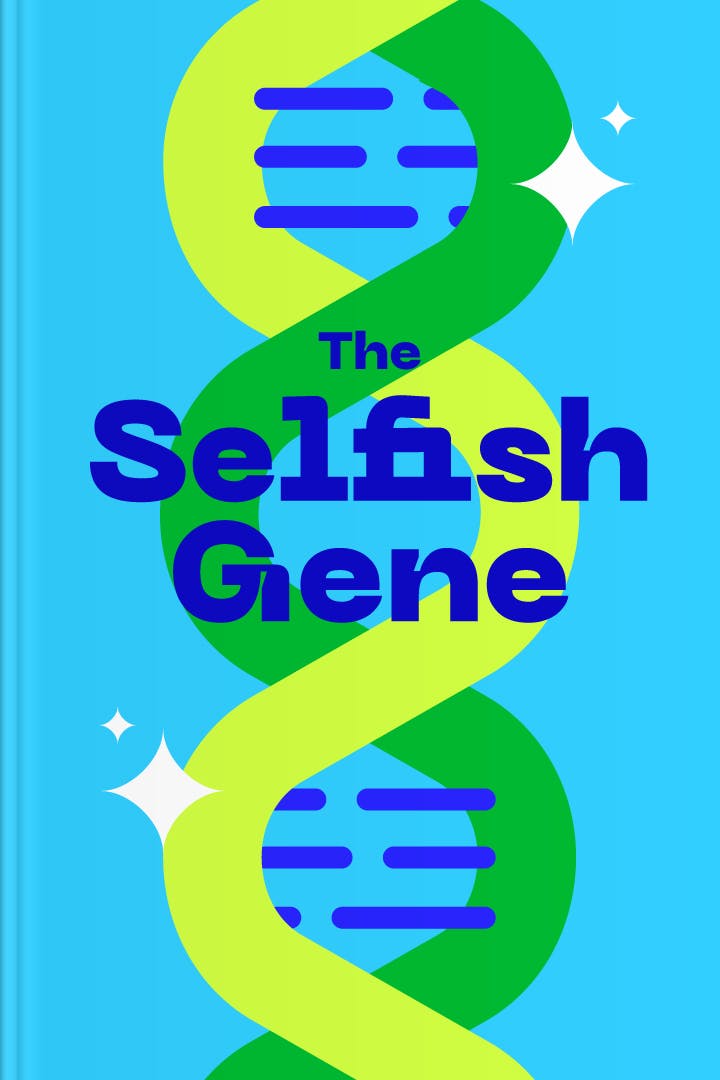 10
10The Selfish Gene
by Richard Dawkins
What is The Selfish Gene about?
"The Selfish Gene" explores the concept of evolution from a gene-centered perspective, challenging traditional notions of altruism and selflessness. Richard Dawkins delves into the intricate mechanisms by which genes ensure their own survival and propagation, ultimately shaping the behavior and characteristics of organisms. This thought-provoking book offers a captivating exploration of the fundamental role genes play in driving the evolution of life on Earth.
Who should read The Selfish Gene
Biology students seeking a comprehensive understanding of evolutionary theory.
Science enthusiasts interested in exploring the concept of gene-centered evolution.
Individuals curious about the impact of genes on human behavior.
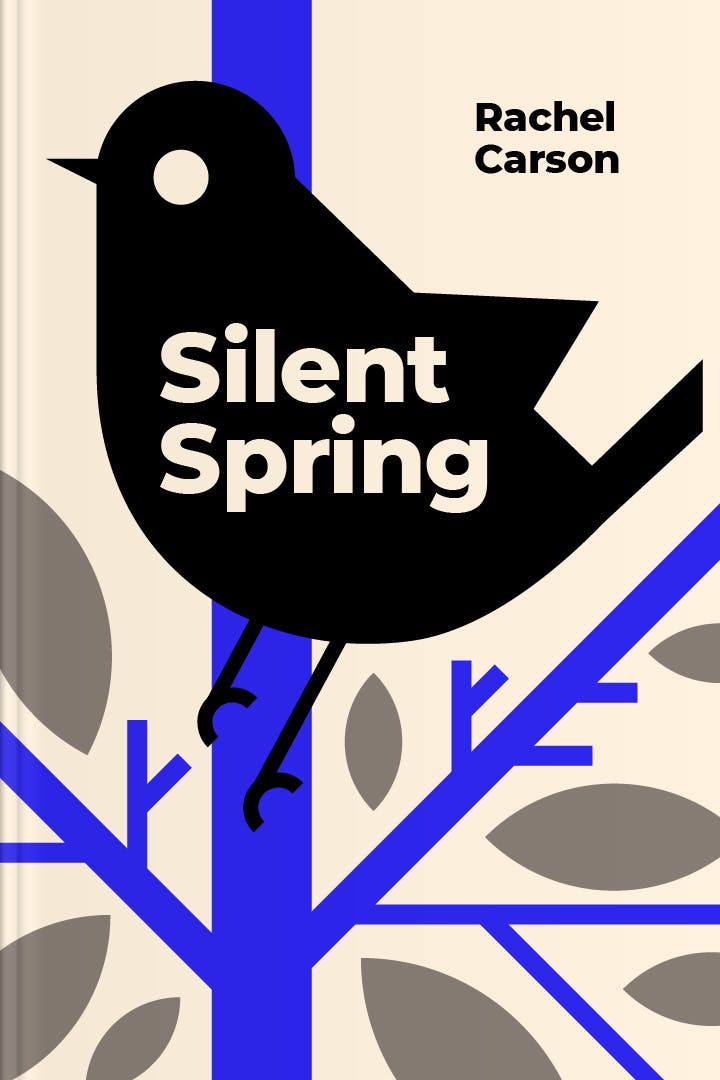 11
11Silent Spring
by Rachel Carson
What is Silent Spring about?
"Silent Spring" is a groundbreaking environmental book that exposes the devastating effects of pesticides on the natural world. Written by a renowned author, this thought-provoking work highlights the alarming decline of bird populations and the subsequent disruption of ecosystems. Through meticulous research and compelling storytelling, the book serves as a wake-up call, urging readers to reconsider the consequences of human actions on the delicate balance of nature.
Who should read Silent Spring
Environmentalists and conservationists concerned about the impact of pesticides.
Scientists and researchers studying the effects of chemical pollution.
General readers interested in understanding the consequences of human actions on nature.
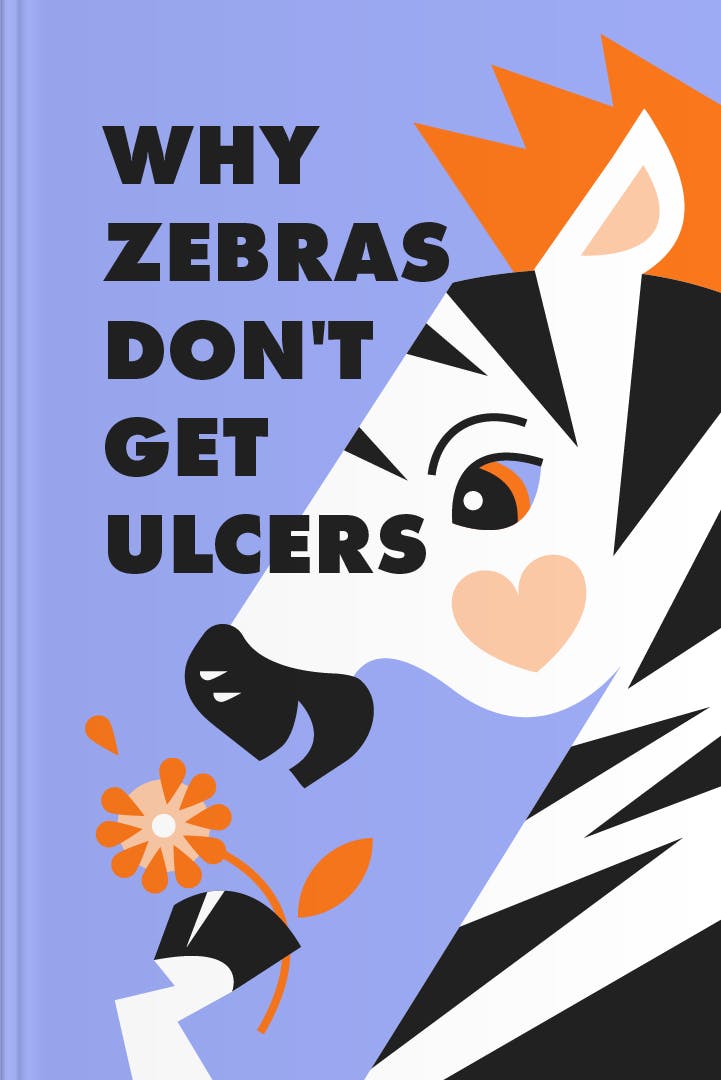 12
12Why Zebras Don't Get Ulcers
by Robert M. Sapolsky
What is Why Zebras Don't Get Ulcers about?
In this insightful book, the author delves into the fascinating world of stress and its impact on our bodies. Exploring the intricate relationship between stress and health, Sapolsky explains why zebras, unlike humans, rarely suffer from stress-related illnesses. With a blend of scientific research and engaging anecdotes, he offers practical strategies to manage stress and improve our overall well-being. A must-read for anyone seeking to understand the complex interplay between our minds and bodies in the face of stress.
Who should read Why Zebras Don't Get Ulcers
Individuals seeking to understand the impact of stress on health.
Students studying the physiological effects of stress.
Medical professionals looking to enhance their knowledge of stress-related illnesses.
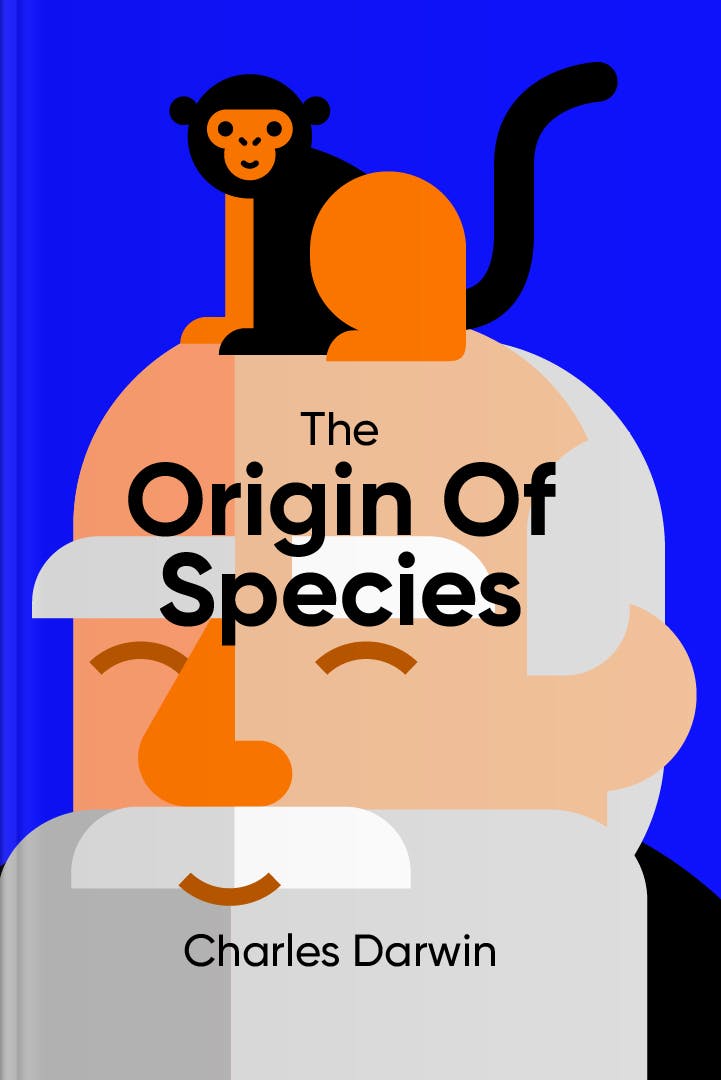 13
13The Origin of Species
by Charles Darwin
What is The Origin of Species about?
"The Origin of Species" is a groundbreaking scientific work that explores the theory of evolution. Written by a renowned naturalist, this book presents compelling evidence and observations to support the idea that all species on Earth have evolved over time through a process of natural selection. With meticulous research and detailed explanations, the author challenges traditional beliefs and revolutionizes our understanding of the diversity and interconnectedness of life on our planet.
Who should read The Origin of Species
Biology students and researchers seeking a comprehensive understanding of evolution.
Science enthusiasts interested in the groundbreaking theories of Charles Darwin.
Individuals curious about the origins of life and the diversity of species.
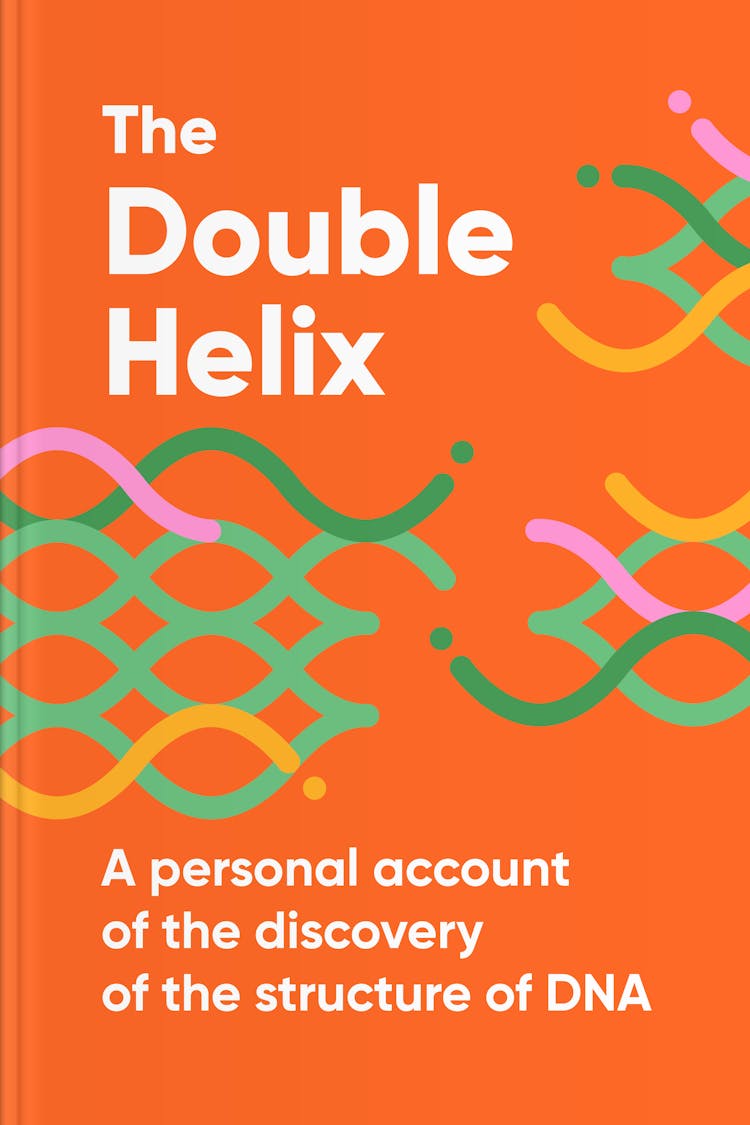 14
14The Double Helix
by James Watson, KBE
What is The Double Helix about?
"The Double Helix" is a captivating memoir that delves into the exhilarating journey of unraveling the mystery behind the structure of DNA. Written by a renowned scientist, this personal account takes readers behind the scenes of the scientific community in the 1950s, revealing the intense competition, brilliant minds, and ethical dilemmas that shaped one of the greatest scientific breakthroughs in history.
Who should read The Double Helix
Scientists and researchers interested in the history of DNA discovery.
Biology students and enthusiasts seeking insights into DNA structure.
Individuals curious about the personal experiences of a renowned scientist.
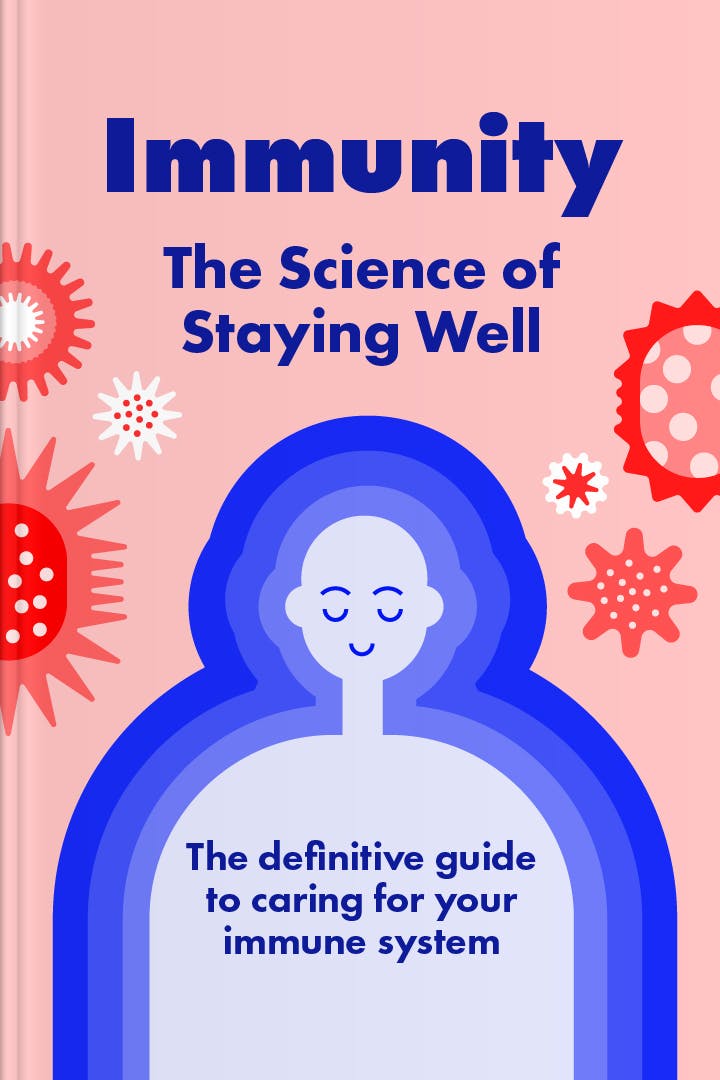 15
15Immunity
by Dr. Jenna Macciochi
What is Immunity about?
"Immunity: The Science of Staying Well" by Dr. Jenna Macciochi is a comprehensive guide that delves into the intricate workings of the immune system. Dr. Macciochi explores the latest scientific research to provide readers with a thorough understanding of how to care for and optimize their immune system. With practical tips and evidence-based advice, this book equips readers with the knowledge to strengthen their immunity and lead a healthier, more resilient life.
Who should read Immunity
Individuals seeking to understand the intricate workings of their immune system.
Health-conscious individuals looking for practical tips to boost their immunity.
Medical professionals interested in the latest scientific research on immunity.
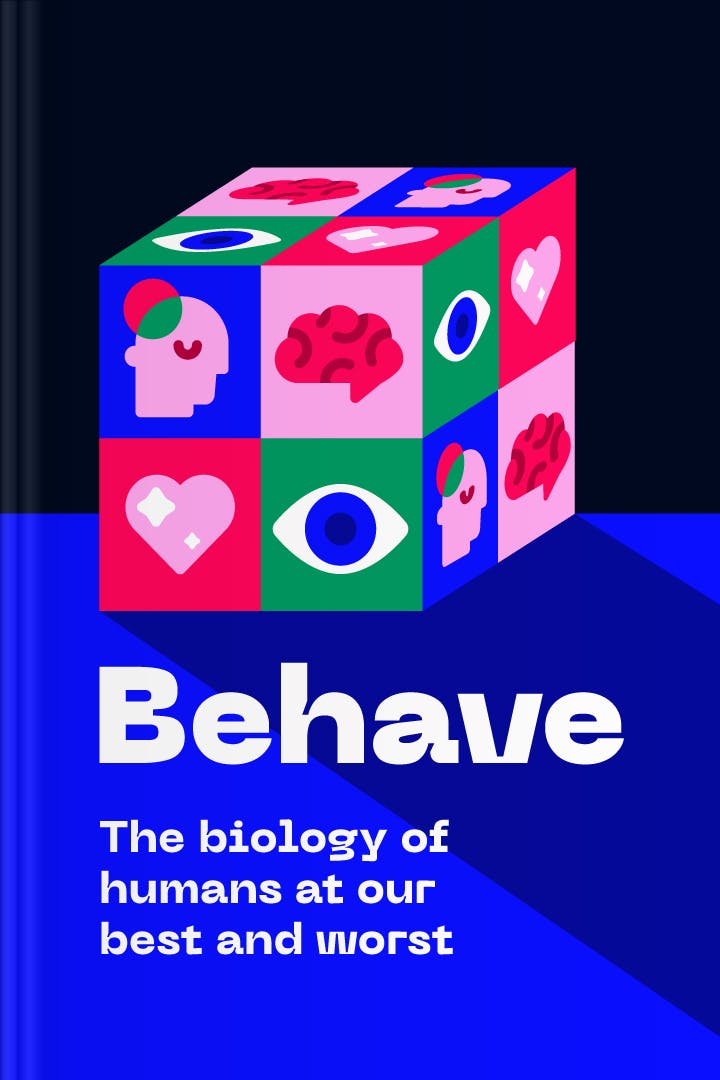 16
16Behave
by Robert M. Sapolsky, Ph.D.
What is Behave about?
In this captivating exploration of human behavior, a renowned neuroscientist delves into the intricate workings of our brains to uncover the biological roots behind our best and worst actions. From the influence of genes and hormones to the impact of childhood experiences, Sapolsky offers a thought-provoking analysis of what drives our behavior, shedding light on the complex interplay between biology and society.
Who should read Behave
Psychology students seeking a comprehensive understanding of human behavior.
Neuroscientists interested in exploring the biological basis of human actions.
General readers curious about the complexities of human behavior.
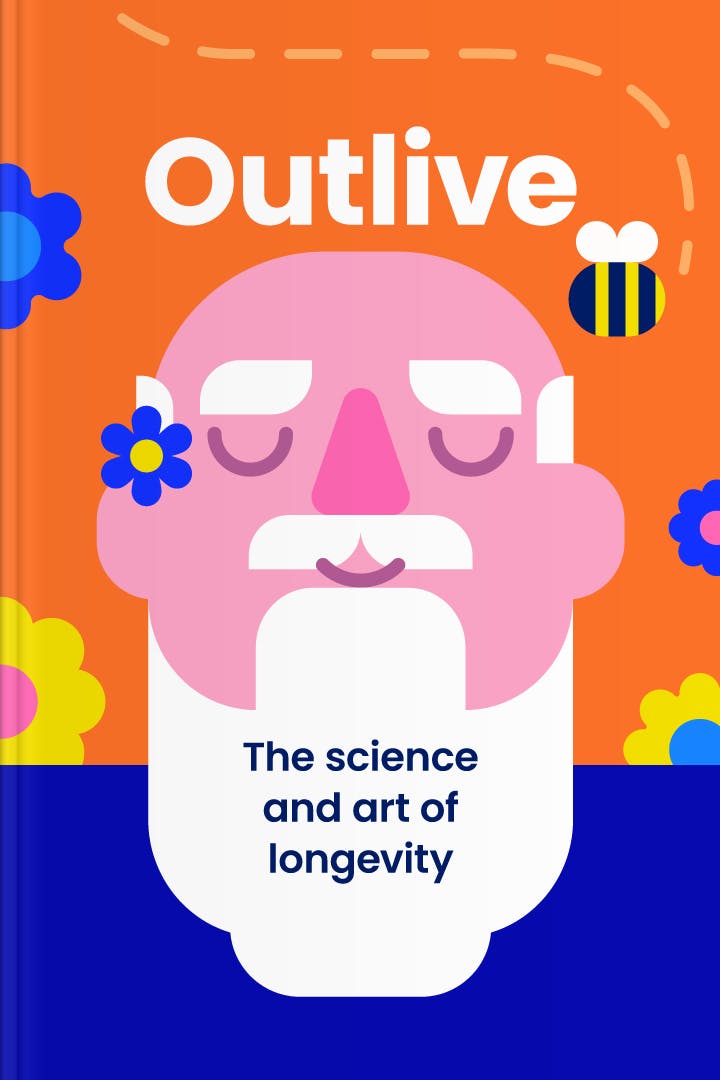 17
17Outlive
by Peter Attia, M.D.
What is Outlive about?
"Outlive: The Science and Art of Longevity" delves into the fascinating world of extending human lifespan. Written by Peter Attia, M.D., this book explores the latest scientific research and practical strategies to enhance longevity. From nutrition and exercise to sleep and stress management, Attia provides valuable insights and actionable advice to help readers optimize their health and live longer, healthier lives. Discover the secrets to unlocking a longer, more fulfilling existence in this captivating exploration of longevity.
Who should read Outlive
Health enthusiasts seeking evidence-based strategies for extending their lifespan.
Medical professionals interested in the latest research on longevity.
Individuals looking to optimize their health and well-being as they age.
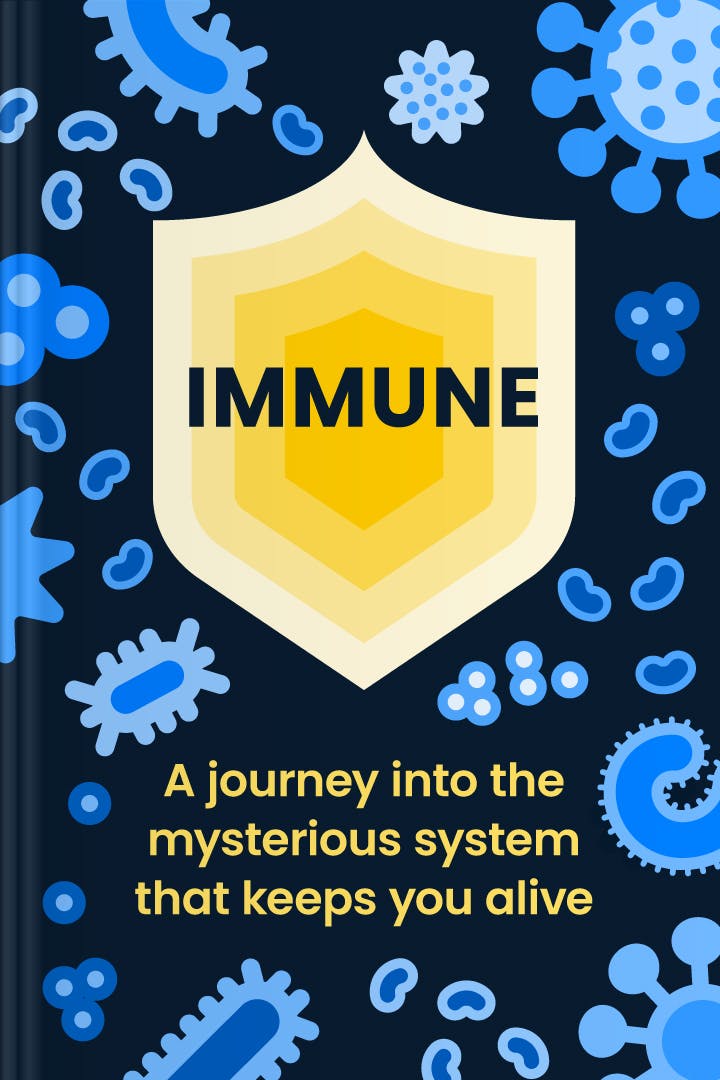 18
18Immune
by Philipp Dettmer
What is Immune about?
"Immune: A Journey into the Mysterious System That Keeps You Alive" takes readers on an enlightening exploration of the human immune system. Written by Philipp Dettmer, this captivating book delves into the intricate workings of our body's defense mechanism, unraveling the secrets behind its ability to protect us from diseases and infections. With a blend of scientific research and engaging storytelling, Dettmer offers a fascinating glimpse into the remarkable world of immunity.
Who should read Immune
Science enthusiasts seeking a captivating exploration of the human immune system.
Medical professionals looking to deepen their understanding of immunology.
Curious individuals eager to unravel the secrets of their own bodies.
